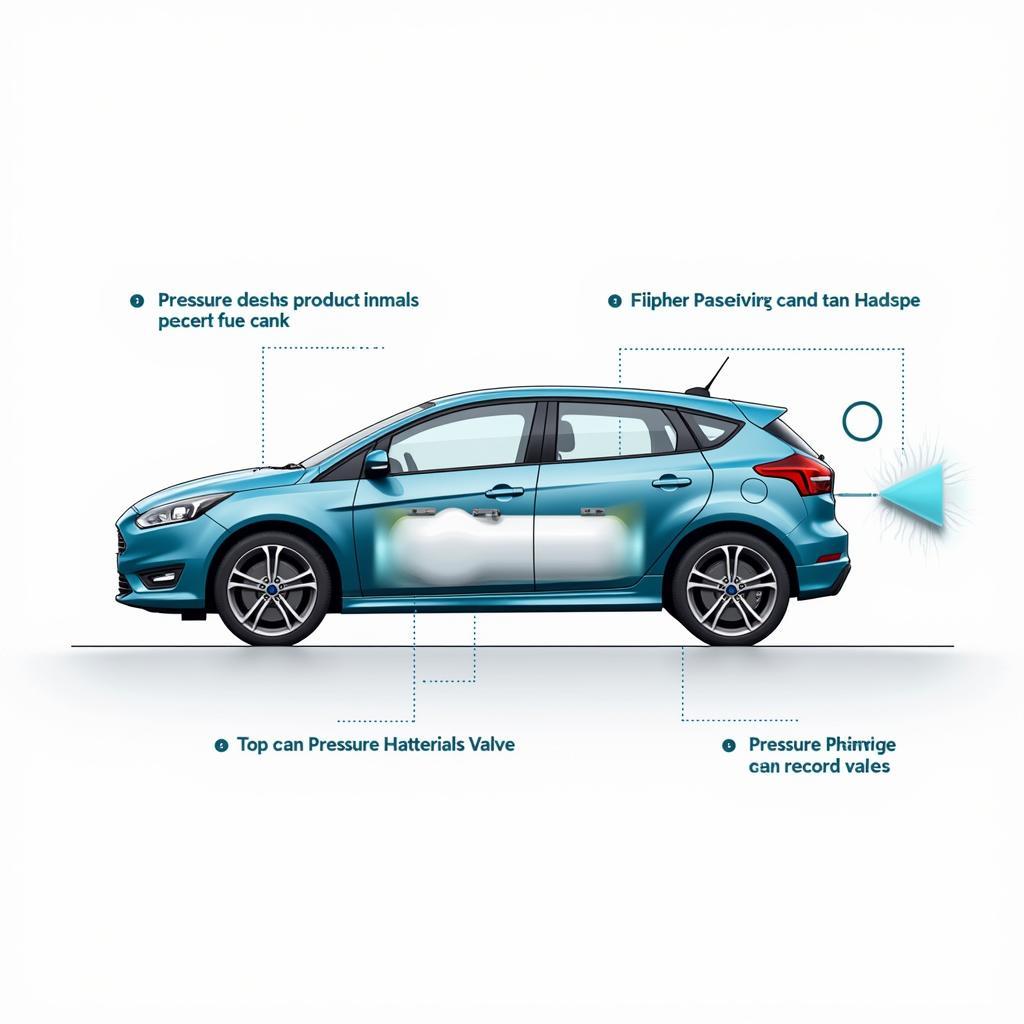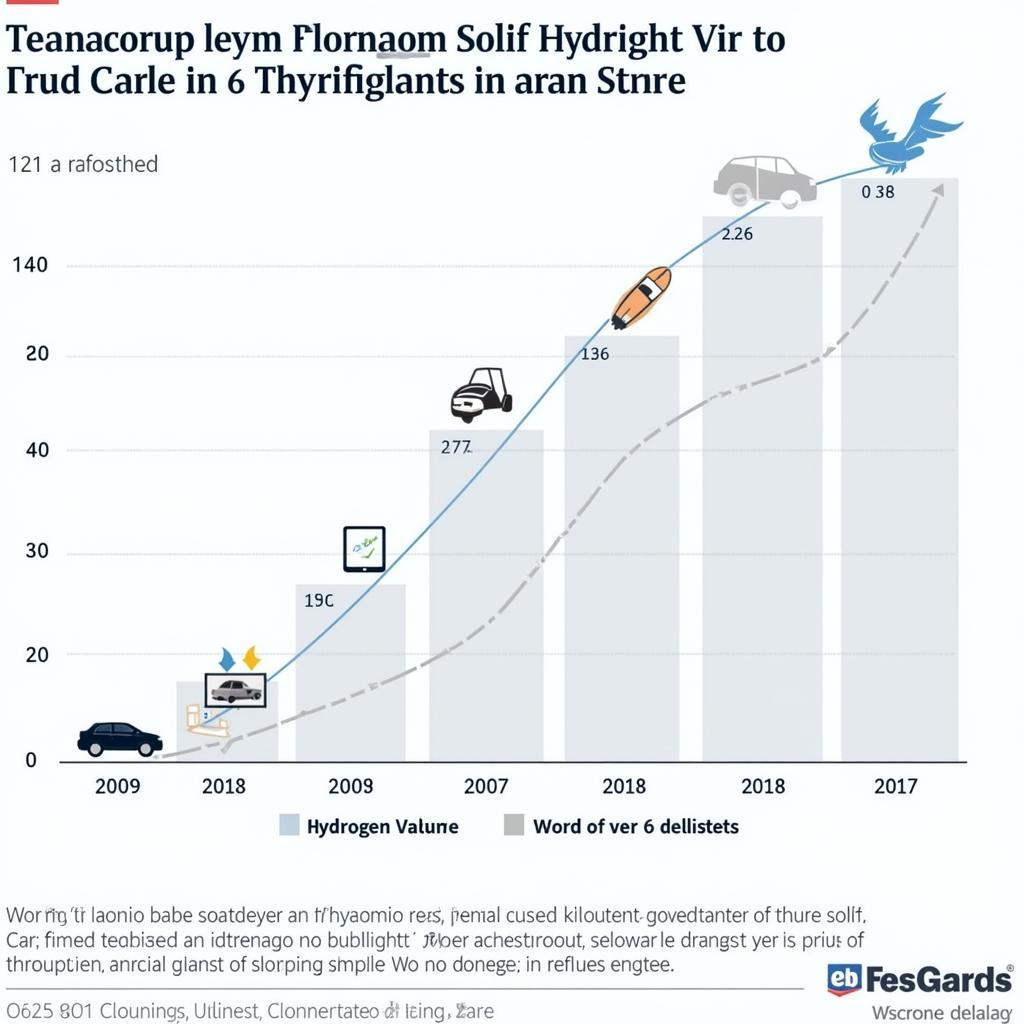Hydrogen cars, often touted as the ultimate eco-friendly solution, have been generating buzz for years. But despite the hype, they haven’t quite taken off. So, what’s the problem with hydrogen cars? This article dives deep into the challenges hindering widespread adoption, from production and storage to infrastructure and cost.
One of the biggest hurdles is hydrogen production. While hydrogen is the most abundant element in the universe, it doesn’t exist in its pure form on Earth. It needs to be extracted, which currently relies heavily on fossil fuels, negating some of the environmental benefits. Green hydrogen, produced using renewable energy, is the ideal solution, but it’s currently more expensive and less readily available. Another key issue lies in storage. Hydrogen is notoriously difficult to store safely and efficiently. It requires high-pressure tanks, which add weight and complexity to vehicles.
Hydrogen Car Infrastructure: A Major Roadblock
The lack of infrastructure is a significant impediment. Imagine trying to drive an electric car without charging stations. That’s the current reality for hydrogen car owners. The limited number of hydrogen fueling stations makes long-distance travel impractical and restricts the appeal of these vehicles. Building a widespread hydrogen infrastructure requires substantial investment and coordination, a challenge that has slowed down adoption.
problems after washing car engine
The Cost Conundrum of Hydrogen Cars
Cost is another major factor. Hydrogen cars are currently more expensive than comparable gasoline-powered or electric vehicles. The technology is still relatively new, and economies of scale haven’t yet been achieved. Furthermore, the specialized infrastructure required for hydrogen refueling adds to the overall cost.
“The cost of hydrogen fuel cell technology is a significant barrier. We need breakthroughs in materials and manufacturing processes to make these vehicles more affordable,” says Dr. Amelia Chen, a leading automotive engineer specializing in fuel cell technology.
Hydrogen Car Safety: Addressing Concerns
While hydrogen is highly flammable, advancements in tank technology have made hydrogen cars relatively safe. Rigorous testing and safety protocols are in place to mitigate risks. However, public perception of hydrogen safety remains a concern, hindering wider acceptance.
 Hydrogen Car Safety Features
Hydrogen Car Safety Features
Are Hydrogen Cars Truly Eco-Friendly?
The environmental impact of hydrogen cars depends heavily on the source of hydrogen. If produced from fossil fuels, the overall emissions can be comparable to gasoline-powered vehicles. However, green hydrogen, produced through electrolysis using renewable energy, offers a truly clean and sustainable solution. The transition to green hydrogen production is crucial for maximizing the environmental benefits of hydrogen cars.
“The future of hydrogen cars hinges on green hydrogen. We need to invest heavily in renewable energy sources to make this a truly sustainable transportation option,” adds Dr. Chen.
The Future of Hydrogen Cars: A Long Road Ahead
Despite the challenges, hydrogen cars hold significant potential. Their quick refueling times and long ranges offer advantages over electric vehicles, especially for long-distance travel. As technology advances and costs decrease, hydrogen cars could play a more prominent role in the future of transportation. Continued investment in research, development, and infrastructure is crucial to realizing this potential. What’s the problem with hydrogen cars today? It’s a combination of factors, from production and infrastructure to cost and public perception.
 Hydrogen Car Future Outlook
Hydrogen Car Future Outlook
[problems after washing car engine](https://autotippro.com/problems-after washing-car-engine/)
In conclusion, while the road ahead for hydrogen cars is challenging, it’s not insurmountable. Addressing the issues of production, storage, infrastructure, and cost will be crucial for widespread adoption. What’s the problem with hydrogen cars? Many factors are at play, but the potential benefits are worth pursuing. For any automotive issues you may encounter, connect with us at AutoTipPro. We’re here to help! Call us at +1 (641) 206-8880 or visit our office at 500 N St Mary’s St, San Antonio, TX 78205, United States.






Leave a Reply